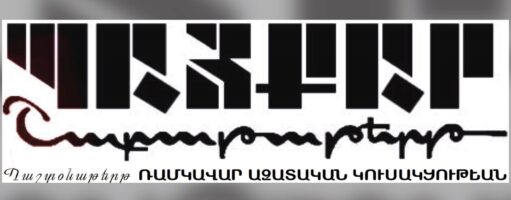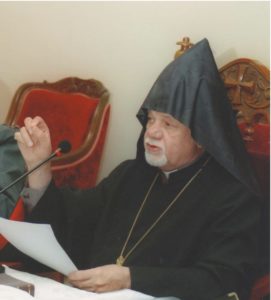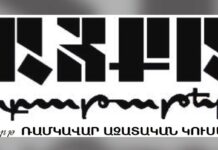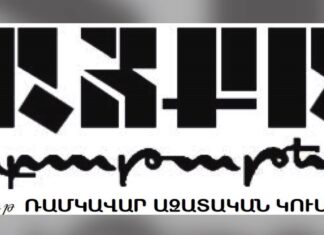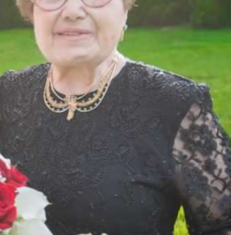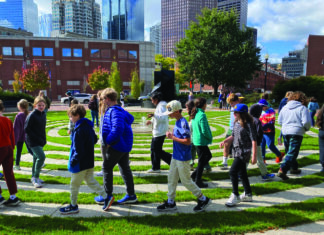Special to the Mirror-Spectator
NEW YORK — He takes care of his flock in one of the most dangerous countries in the world, where dozens are killed daily. Archbishop Avak Asadourian who has been the Primate of the Armenian Diocese of Iraq for the past 33 years, during some of its most traumatic periods, is considered a hero among his people. He is currently visiting the United States for a special celebration to be accorded him by the large Iraqi-Armenian community in Glendale on September 16, in honor of his 35 years as a clerical leader. On this trip, the Primate also visited the St. Vladimir’s and St. Nersess’ Seminaries in New York from which he graduated in 1976.
During an exclusive interview, the Primate spoke about the insecure condition of the Armenian and Christian communities since the time of the Iran-Iran war, which started in 1980, and the “ill-conceived war perpetrated by the NATO coalition against Iraq” in 2003, “reportedly for the purposes of bringing democracy. I have seen this kind of democracy,” he stated, “which has caused the demise of Christianity in its Eastern manifestations. This is very sad, and I don’t think it can be revived. Now Christians are leaving and going mainly to the West. Iraq which had been a country very tolerant to Christianity and whose people were highly educated with doctors, engineers, educators, craftsmen, is now suffering from a Brain Drain. And Arab countries are in an upheaval called a ‘Spring.’ This is part and parcel of the Game of Nations,” he said with irony, referring to the best-selling book of that title which was published in 1970.
The once-vibrant Armenian community in Iraq numbered at around 35,000, but has now been reduced to 10,000. Due to the absence of security, Christians are targeted, and are migrating both outside and inside Iraq. Many have relocated to the Kurdish autonomous region and its capital, Erbil, which is safer, and where an Armenian church is now being built. There are 13 other Armenian churches in Iraq, four in Baghdad, two in both Basra and Mosul, one in Kirkuk and four in other areas.
Armenians have a very deep history in Iraq. Since 1222, there has been an Armenian church in Basra, one in Mosul since 1375, and another in Baghdad established in 1639. The Primate noted that in 1639, one of the important generals of the Ottoman army, Kevork Nazaretian, who demolished the gates of Baghdad to allow the Ottoman army to capture Baghdad, was granted his wish by the Sultan — two pieces of land, one for a church and another for a cemetery. Into this church named St. Asdevadzadzin (St. Mary) were brought the bones of the Forty Martyrs of Sebastia. In 1968, this church was demolished due to its dilapidated condition and rebuilt along the same dimensions and in the same location by a benefactor.
